Health
/ArcaMax

Wheelchair? Hearing aids? Yes. 'Disabled'? No way!
In her house in Ypsilanti, Michigan, Barbara Meade said, “there are walkers and wheelchairs and oxygen and cannulas all over the place.”
Barbara, 82, has chronic obstructive pulmonary disease, so a portable oxygen tank accompanies her everywhere. Spinal stenosis limits her mobility, necessitating the walkers and wheelchairs and considerable...Read more
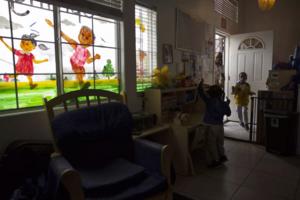
These South LA women built a child-care haven on their block. It's a lifeline for families
LOS ANGELES -- When the seven-beat rhythm of "shave and a haircut, two bits" resounds in the mornings on a car horn through this South L.A. neighborhood, Jackie Jackson or Guadalupe Andrade is likely behind the wheel, child-care providers who live on a one-block stretch of 115th Street.
The cheerful honk is a familiar greeting among parents, ...Read more

The Kid Whisperer: How the real world can teach kids to work
Dear Kid Whisperer,
I have been using Behavioral Leadership strategies and have noticed AMAZING results! Most of my students help run the classroom smoothly, from human alarm clocks to taking care of plants to working cooperatively in their teams. One question though: What could I do if a student refuses to do their work besides failing them? I...Read more

5 magic words after the 12 days of Christmas
Christmas holidays generate a lot of togetherness. A lot of togetherness means cooking, cleaning, searching for kids’ missing boots and gloves, digging through trash for a gift card accidentally thrown away, separating grands leg wrestling on the family room floor and plunging the kitchen garbage disposal.
It’s a lot of merry.
Ho, ho, hold...Read more

On Gardening: Supertunia Hoopla Vivid Orchid garners Petunia of the Year
Supertunia Hoopla Vivid Orchid petunia has only been out for a couple of years and is already lining the trophy case. Now it has been chosen as Proven Winners' "Petunia of the Year" for 2026. Indeed, it is living up to that Hoopla name.
The Supertunia Hoopla Vivid Orchid is a novelty for sure with its purple picotee pattern and white margins. ...Read more
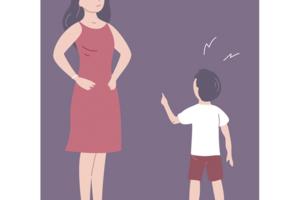
Ex-etiquette: Struggling with a bonus child
Q: My husband and I have been married for three years. Each of us has a son from a previous marriage, and we have a son together. His son is more animated than I’d like, and I’m having trouble getting close to him. Since he’s only with us every other weekend, it sometimes feels like he’s a guest and I’m babysitting the ex’s child, ...Read more

Ask Dating Coach Erika: What if I can't tell what they look like in their profile?
As someone who views hundreds or maybe even thousands of dating profiles per week, let’s just say that I’ve seen a lot of dating profile photos. Too many dating profile photos. So, I know a thing or two about a good photo. I know even more about a bad picture ... and how one seemingly deceptive photo can turn into a left swipe faster than ...Read more

Fewer Americans believe their finances will improve in the year ahead, compared to past 2 years
Faced with sticky inflation and a job market that’s losing steam, many Americans are feeling rattled these days. And when it comes to the year ahead, 32% think their personal finances will worsen in 2026, Bankrate’s recent Financial Outlook Survey found — the highest level of pessimism since 2018, when Bankrate began asking consumers about...Read more

There's gold in that there river, say Minnesota treasure hunters
MINNEAPOLIS -- In the classic 1948 Humphrey Bogart movie, “The Treasure of the Sierra Madre,” an old gold prospector opines that the precious metal is valuable because an ounce represents the sweat and heartbreak of thousands of men who have searched for it.
“An ounce of gold, mister, is worth what it is because of the human labor that ...Read more

Ask Anna: Am I ungrateful for not matching my boyfriend's gift spending?
Dear Anna,
I’m a 32-year-old woman and my boyfriend (35) of two years is furious with me because I won’t buy him a $750 Christmas gift. Earlier this year, he paid for my daughter’s dental emergency (around $500) and bought me an expensive piece of jewelry for my birthday ($600). (I didn’t ask for it.) He makes significantly more money ...Read more

Heidi Stevens: At the end of an imperfect year, a list that reminds us what tomorrow is for
At the start of 2025, Episcopal Bishop Mariann Edgar Budde led a prayer service at Washington’s National Cathedral. President Donald Trump had just taken the oath of office, and Budde had a plea.
“I ask you to have mercy, Mr. President, on those in our communities whose children fear that their parents will be taken away,” she said. “...Read more

Years of planning culminate in 'baby boom' of great apes at LA Zoo. Here's how they did it
LOS ANGELES — Every morning while the great apes of the L.A. Zoo are sleeping, Tania Prebble goes around distributing their food, medicine and other essentials.
She tosses carrots, celery and other fibrous treats like cucumbers on top of the branches and leaves that are reminiscent of the apes' West Central Africa rainforest habitat.
But as ...Read more

Ex-etiquette: Party plans
Q: My ex and I just broke up. I know, great time of year. Obviously, it was a surprise to me. So, here's what I am facing: I've been invited to a New Year's Eve party and I'm sure he'll be there with his new girlfriend. I want to go, but I already feel embarrassed and awkward, and I have no idea how to handle it. What's good ex-etiquette?
A: A ...Read more
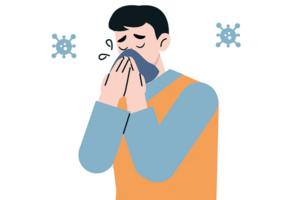
Lori Borgman: 'Tis the season to hack, sniff and cough
If you’ve had a cold recently, you know the drill: You drag yourself to the store and prepare to spend the next four days scanning row after row of cold meds. By the time you find the meds that fit your symptoms, your cold will be gone.
All the fine-print ingredients and warnings on the boxes, bottles and origami folded sheets of paper inside...Read more
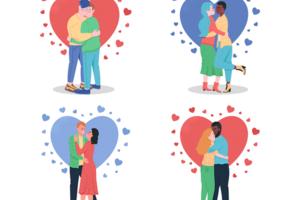
Ask Dating Coach Erika: What does it mean to date?
Note that I do not take Urban Dictionary as gospel (I’d have problems if I did!), but when it comes to defining the word “dating,” the usually off-color site does a pretty good job. One of the (many!) definitions says,“…to be in the early stages of a relationship where they go out on dates to find out what each other is like, as a ...Read more

On Gardening: Jazz Hands Variegated named the 'Heat Loving Shrub of the Year'
This coming new year will be a celebration for all loropetalum lovers. Jazz Hands Variegated will be honored as Proven Winners' "Heat Loving Shrub of the Year." This is "hands" down the most beautiful loropetalum in the marketplace. Just looking at it for a few minutes will cause you to fall madly in love with it.
Loropetalums have the common ...Read more

Jerry Zezima: The jokes are on me
I used to think, because I’m a kid at heart, and even more so at head, that I have the maturity level of a 9-year-old.
But I don’t think so anymore because a 9-year-old, who happens to be one of my grandchildren, thinks my jokes are stupid.
This was made abundantly clear when the sweet, smart and sassy girl, who is wise beyond her years, ...Read more
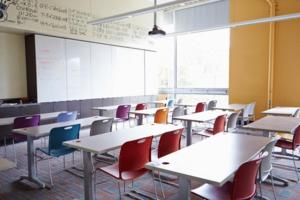
The Kid Whisperer: How to reinforce positive behaviors in the easiest, most effective and bizarre way possible
Dear Kid Whisperer,
I’ve always used Class Dojo to give positive behavior points, and I’ve had a class store as well to cash in their points for activities and prizes. I’ve never felt great about flooding the kids with prizes for expected behavior and it rarely works for difficult students anyway, but where do the rewards stand in the ...Read more

Artist makes stickers to cover Trump's face on National Parks passes -- and the orders are flying in
DENVER -- It took less than a week for Boulder, Colorado, artist Jenny McCarty’s new project to evolve from good-hearted “micro-activism” to a national phenomenon that’s tapped widespread anger with recent changes to the National Parks Service.
“With the design that came out for the 2026 National Parks passes, they took away people’...Read more

This NJ mall's Christmas House is nostalgic and irreverent with Harry Potter, Blockbuster, and a room full of reindeer poop
PHILADELPHIA -- The Philadelphia region is brimming with holiday attractions this season, from Center City’s extravagant affairs to the most humble of mall Santas.
But what about ones that skirt tradition and lean more into the humorous than the Yuletide?
Christmas House at the Deptford Mall in New Jersey combines nostalgia with irreverence ...Read more
Popular Stories
- Ask Dating Coach Erika: What if I can't tell what they look like in their profile?
- The Kid Whisperer: How the real world can teach kids to work
- 5 magic words after the 12 days of Christmas
- On Gardening: Supertunia Hoopla Vivid Orchid garners Petunia of the Year
- Fewer Americans believe their finances will improve in the year ahead, compared to past 2 years






















